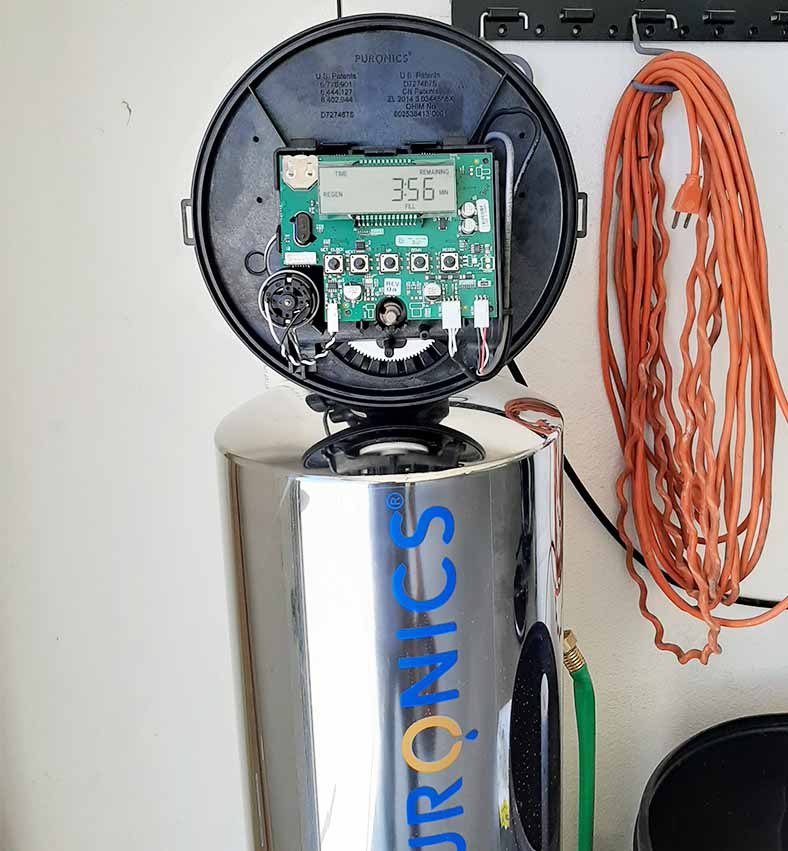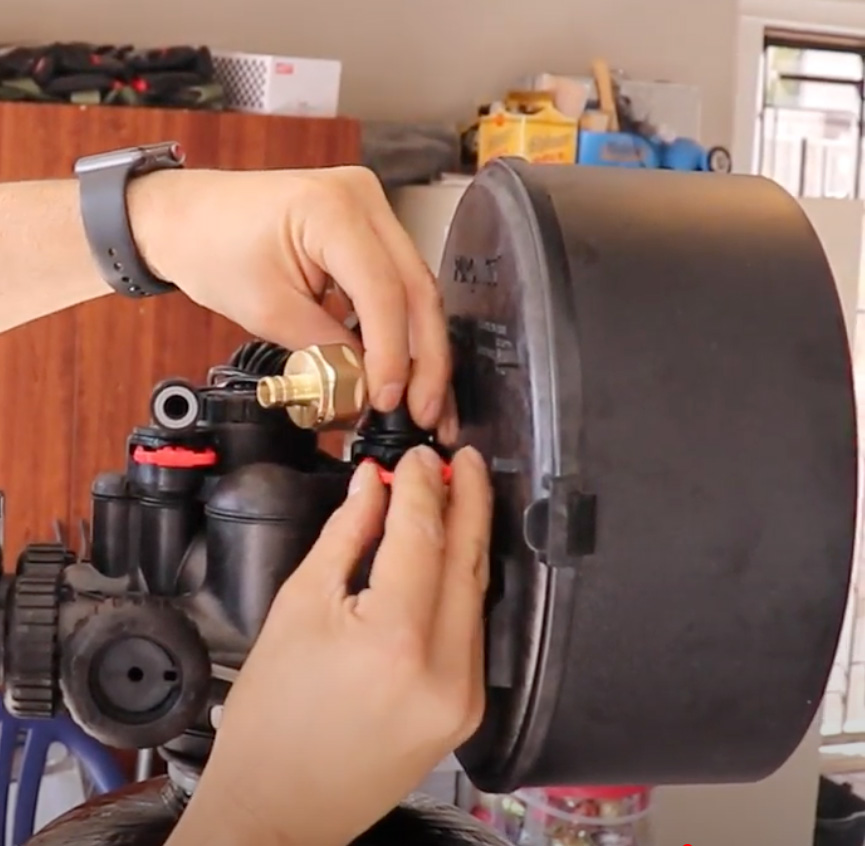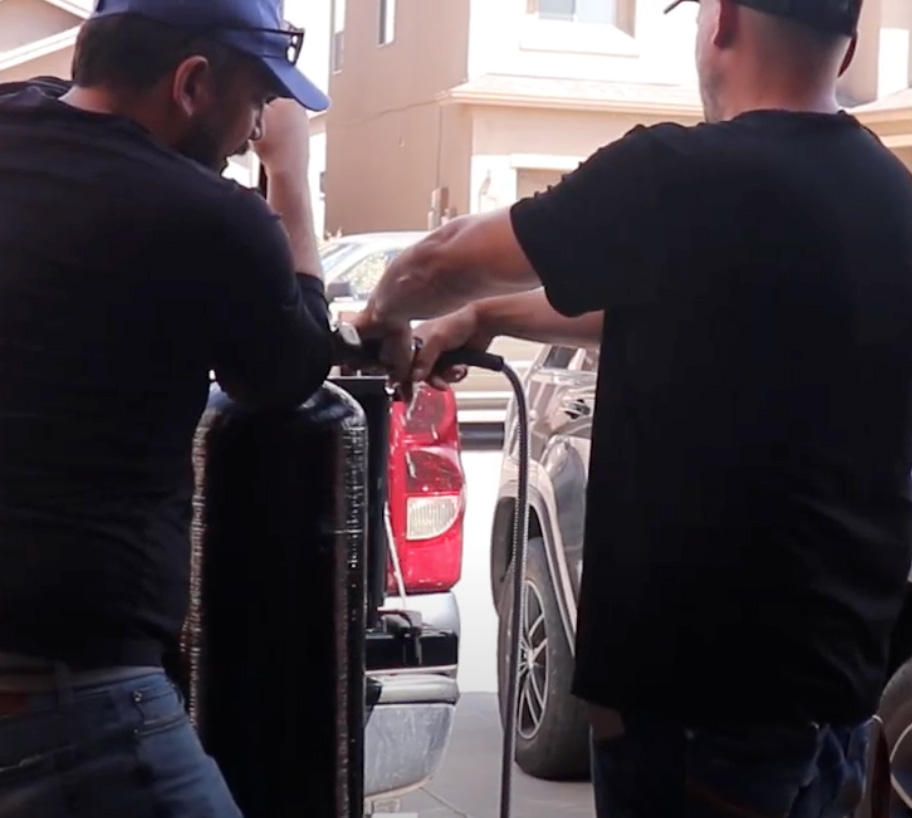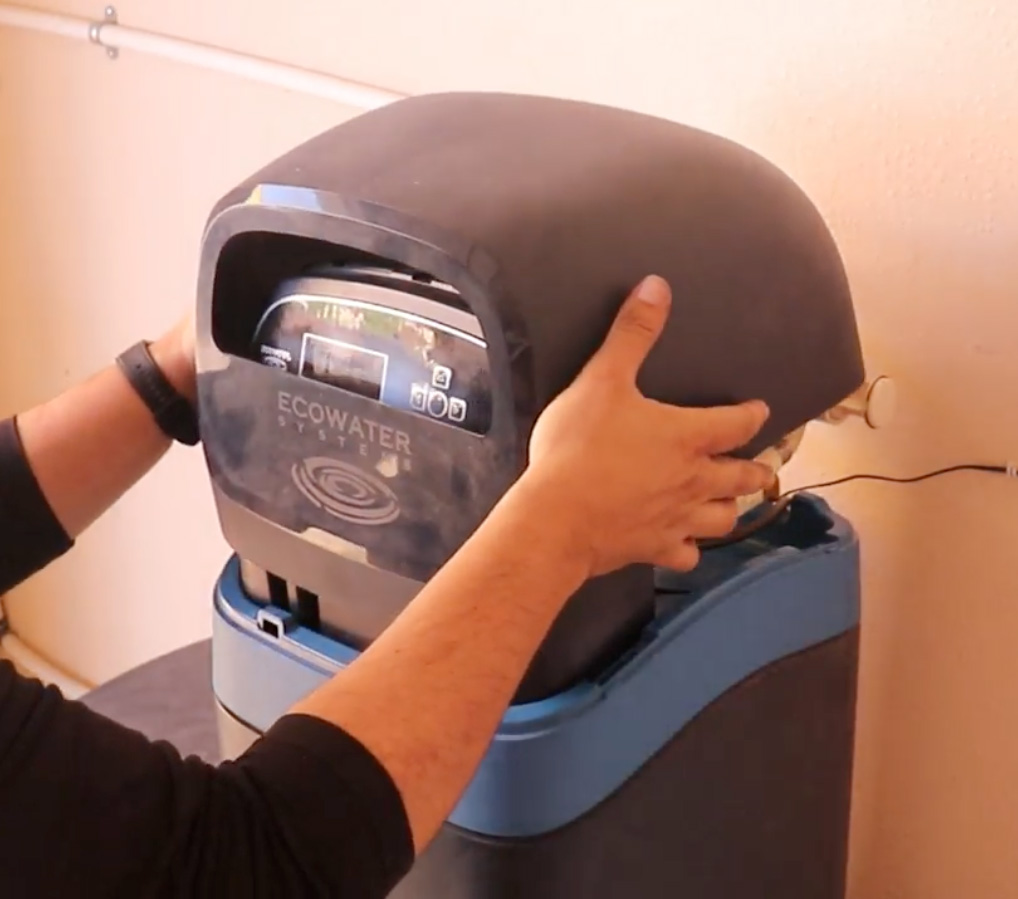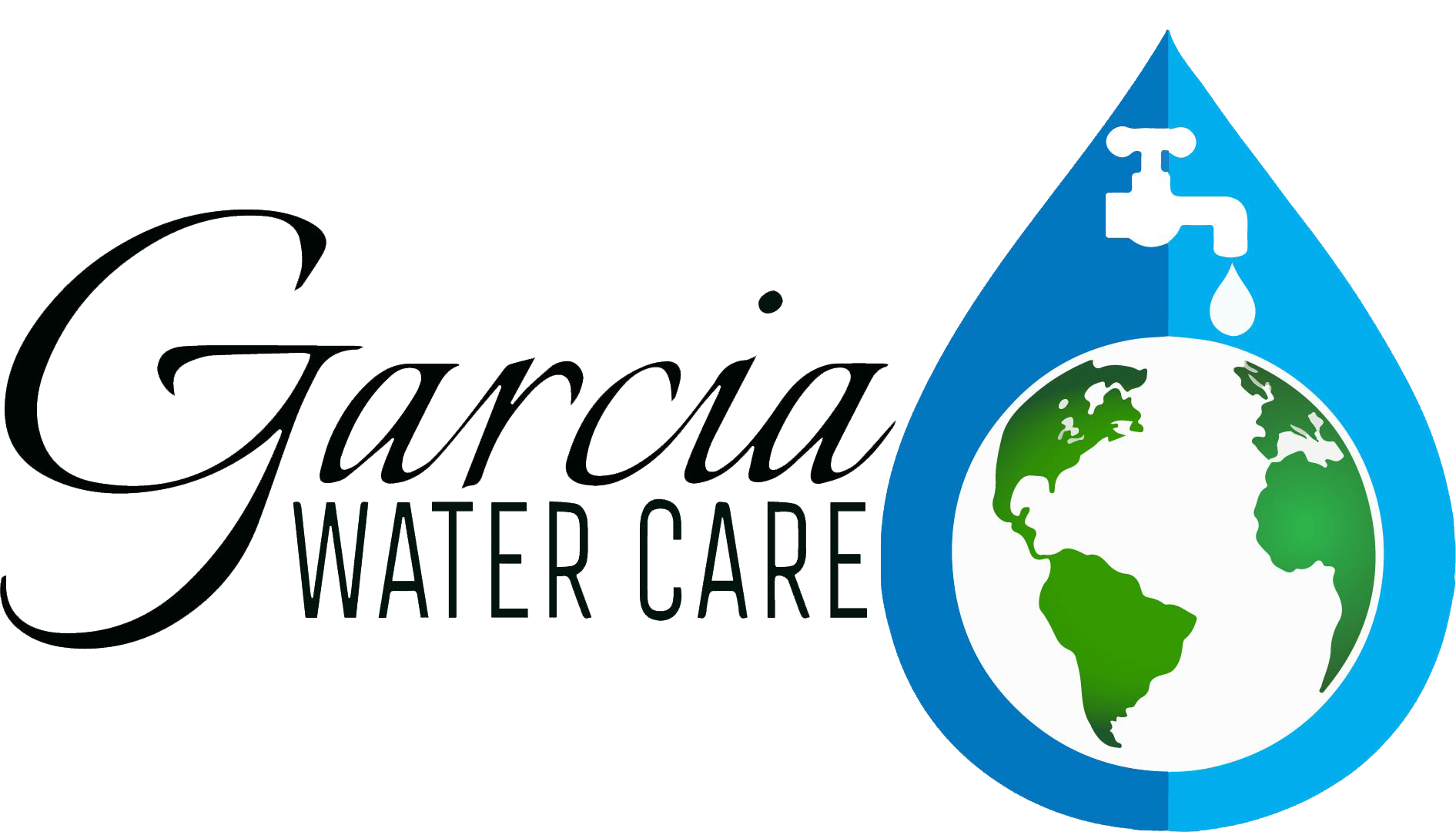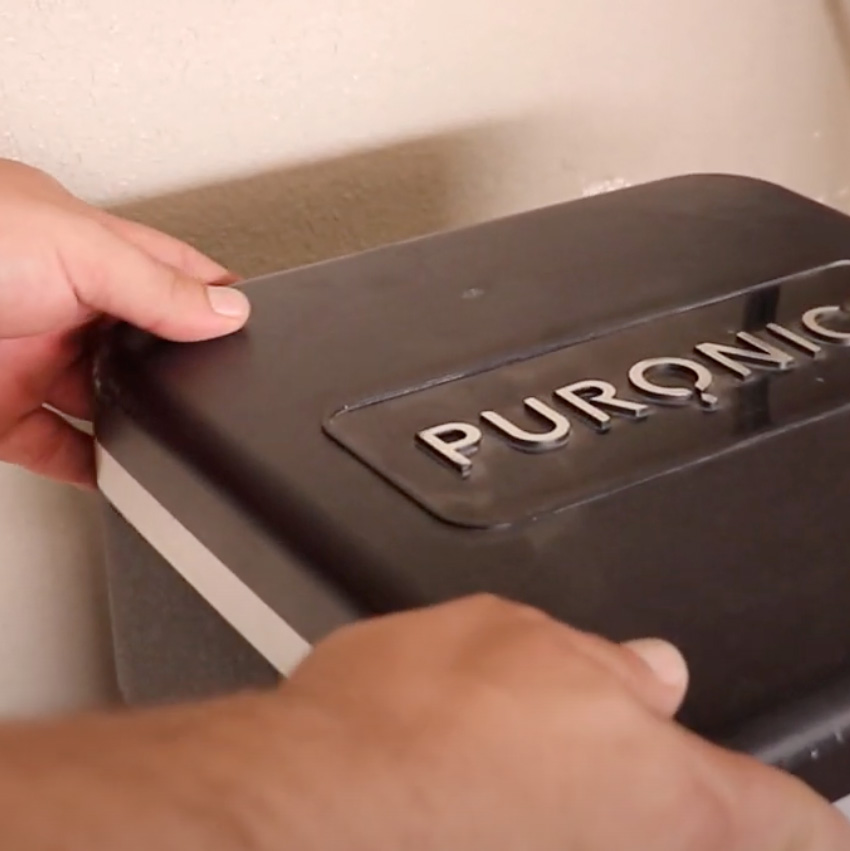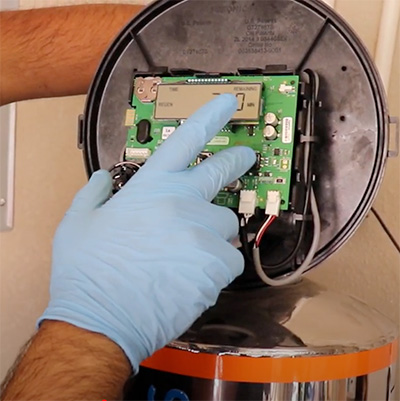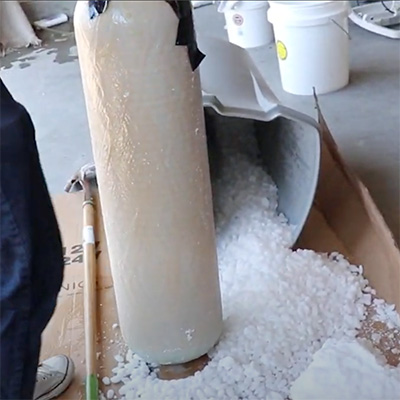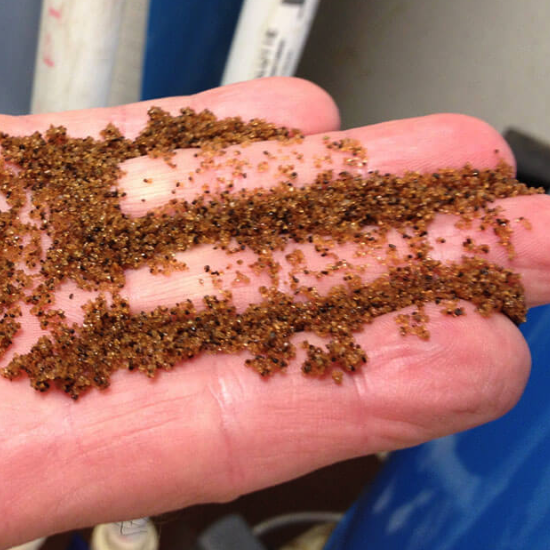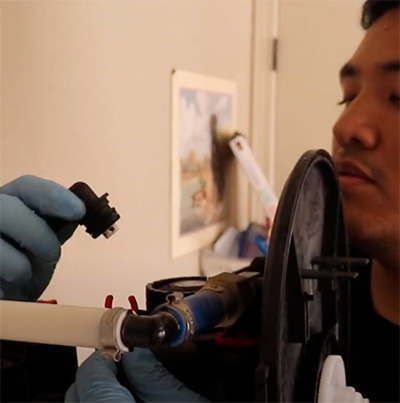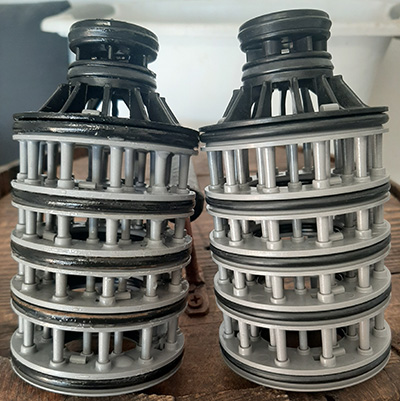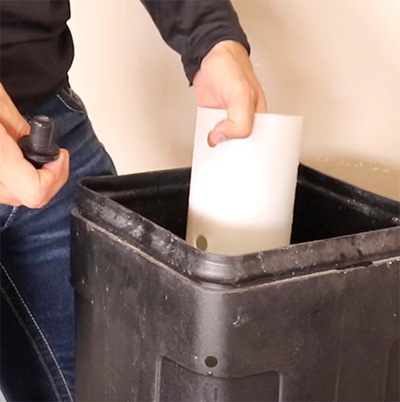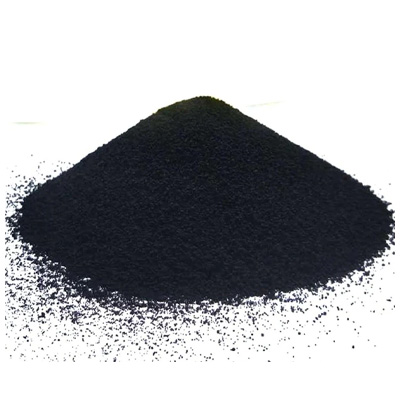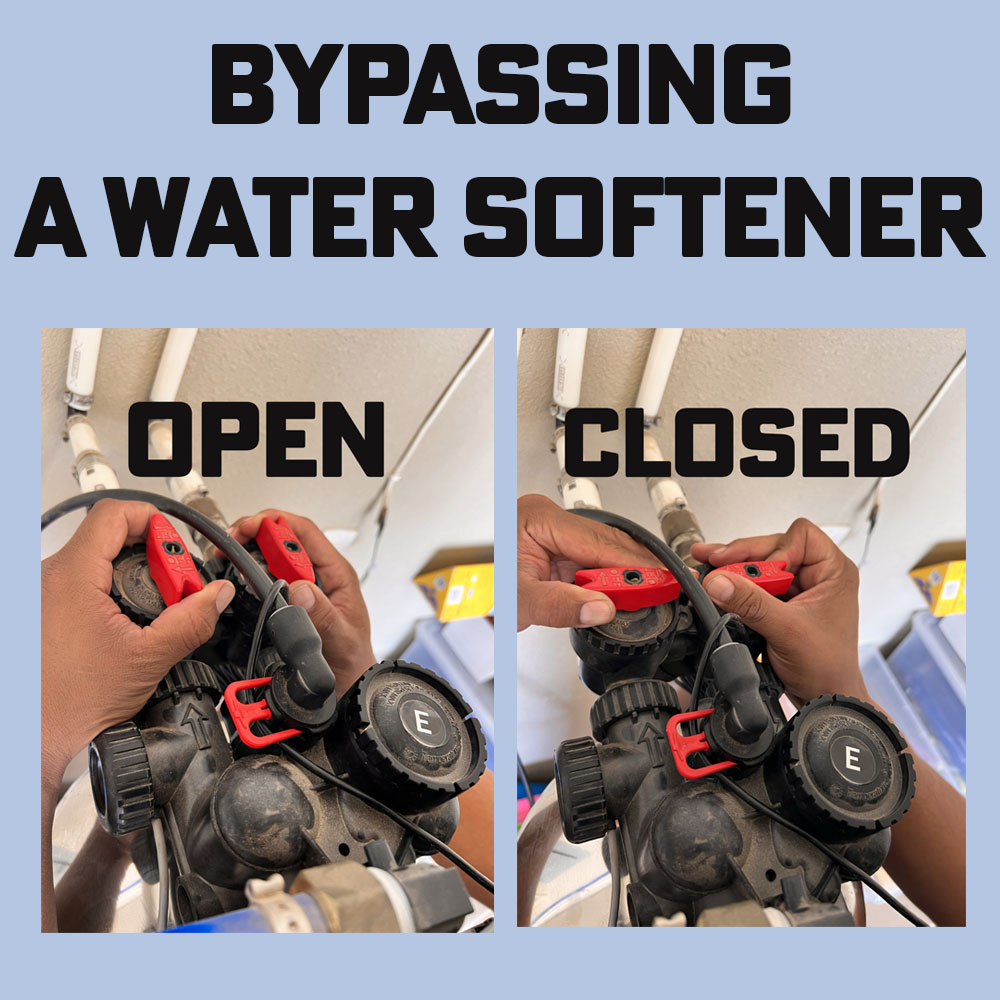A water softener uses ion exchange to remove hardness from water. Here’s how it works:
Step 1: Hard Water Inflow
When hard water enters the softener, it carries minerals like calcium and magnesium that make the water “hard.”
Step 2: Special Resin Beads
Inside the water softener, there are tiny resin beads with a negative charge. Think of them like magnets.
Step 3: Attraction of Hardness Ions
As hard water flows over these resin beads, the positively charged calcium and magnesium ions in the water are attracted to the negatively charged resin beads.
Step 4: Swapping Ions
In this attraction process, the resin beads grab onto the calcium and magnesium ions, removing them from the water. These hardness ions stick to the resin beads.
Step 5: Releasing Softness Ions
To make this exchange happen, the resin beads release sodium ions, which they already had. The amount of sodium released is not harmful in typical usage.
Step 6: Softened Water Output
Now, the water that leaves the water softener is softened because it no longer contains the calcium and magnesium ions that made it hard. Instead, it has some sodium ions, but not at levels that pose health concerns.
Step 7: Continuous Process
This ion exchange process keeps repeating as long as there are hardness ions in the incoming water, ensuring you have consistently softened water.
Step 8: Periodic Regeneration
Over time, the resin beads can become full of hardness ions and less effective. So, the water softener goes through a “regeneration” or cleaning process using a saltwater solution to rejuvenate the resin beads and keep them working effectively.
In essence, a water softener transforms hard water into softened water through ion exchange, making it gentler on plumbing and appliances and improving overall water quality.
